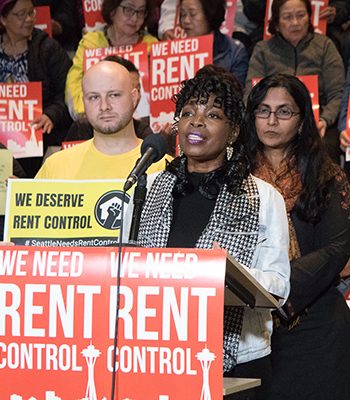America clings to the myth of rugged individualism—a land where anyone can supposedly pull themselves up by their bootstraps. But this mythology crumbles in the face of reality: tens of millions of Americans depend on Social Security, Supplemental Nutrition Assistance Program (SNAP), and other social services to survive. These are not “handouts”—they are lifelines.Social Security is earned income—paid by workers, across a lifetime of labor. Yet every election cycle, politicians—who’ve never missed a meal—find endless budgets for war and corporate bailouts, but suddenly “tighten belts” when it comes to feeding children or helping the elderly afford medication.
Social Security remains the most successful anti-poverty program in American history. Before it was enacted in 1935, the elderly faced destitution, with over half living in poverty. Today, that number has been reduced to under 10%, thanks to a system that ensures workers receive benefits they paid into. It is not an “entitlement” in the sense of a freebie; it is a rightful return on investment, a system that Americans have funded with every paycheck. Yet the myth persists: Social Security is “going bankrupt.” The reality? The only way it would ever collapse is if Congress actively sabotaged it—diverting funds or privatizing it for Wall Street profits.
Social Security is not “going broke.” It is underfunded—by deliberate political neglect. Congress has failed to adjust its funding mechanisms to match economic reality. As of 2025, only wages up to $176,100 are taxed for Social Security. Growing wealth inequality means a shrinking share of national income supports Social Security. Simply eliminating this arbitrary cap resolves most funding concerns, but a full fix requires more. Without action, Social Security faces a shortfall by the early 2030s, risking 20% benefit cuts. An estimated $3.7 trillion—over 75 years—is needed to preserve full benefits.
SNAP is the lifeline that keeps 40 million Americans from hunger. The average SNAP benefit? About $6 per day. Enough to keep people from starving, but not enough to live with dignity. Despite this, some lawmakers insist that food assistance makes people lazy—as if starvation is the necessary motivation to participate in an economy where full-time workers still qualify for food stamps. And remember: most SNAP recipients are children, seniors, or disabled individuals. The “welfare queen” myth is a racist, classist fiction—crafted to justify taking food from the poor.
Every advanced society understands: a strong social safety net is not weakness—it is civilization. European nations provide universal healthcare, generous parental leave, and well-funded retirement systems. Canada, Japan, and countless others do not abandon their elderly to homelessness or force single mothers to choose between rent and groceries. Meanwhile, in America, social services are framed as burdens—not the basic duties of a government.
The absence of support fractures communities, fuels crime, and creates a permanent underclass blamed for its own suffering. Nations with strong safety nets see lower crime, better mental health, and greater economic mobility. The evidence is overwhelming: investing in people strengthens society.
Therefore, under Folklaw:
Social Security, SNAP, and all essential social services shall be fully funded—and prioritized above military spending and corporate subsidies.
These programs shall never be privatized, reduced, or made conditional upon punitive measures. The government shall honor its contract with the people—ensuring no one starves, suffers, or dies in poverty while billionaires hoard fortunes they can never spend.
Funding for social services shall be indexed to national wealth, ensuring that prosperity is shared. Economic security shall be recognized as essential to democracy itself.
Resolution
A RESOLUTION TO GUARANTEE STRONG SOCIAL SERVICES
SUBJECT: Ensuring full funding and protection of Social Security, food assistance, and public welfare programs as essential commitments to economic stability and human dignity.
WHEREAS, Social Security, Supplemental Nutrition Assistance Program (SNAP), and other public welfare programs are not charity, but a social contract—funded by workers and relied upon for survival;
WHEREAS, Social Security is the most successful anti-poverty program in American history, reducing elderly poverty from over 50% before its enactment in 1935 to under 10% today, and ensuring that retirees, widows, and disabled individuals receive benefits they have earned;
WHEREAS, Social Security is not “going bankrupt,” but is underfunded due to legislative failure to adjust funding mechanisms, with an arbitrary income cap ($176,100 as of 2025) limiting payroll tax contributions and exacerbating financial shortfalls;
WHEREAS, eliminating this income cap and implementing other long-term funding adjustments would ensure Social Security’s solvency without reducing benefits for future generations;
WHEREAS, SNAP provides vital food assistance to 40 million Americans, with an average benefit of only $6 per person per day, preventing starvation but failing to provide true food security or dignity;
WHEREAS, the majority of SNAP recipients are children, the elderly, and disabled individuals, making it an essential safety net rather than a “handout,” despite persistent political attacks based on classist and racist stereotypes;
WHEREAS, strong social safety nets are hallmarks of advanced societies, with European nations, Canada, Japan, and others providing universal healthcare, parental leave, and robust retirement systems, leading to better health outcomes, lower crime rates, and greater economic mobility;
WHEREAS, the lack of adequate social protections in the United States contributes to systemic poverty, worsens public health, and perpetuates inequality, while nations with strong welfare programs experience higher quality of life and economic stability;
THEREFORE, BE IT RESOLVED that Social Security, SNAP, and all essential social services shall be fully funded and prioritized above all other budgetary concerns, including military spending and corporate subsidies.
BE IT FURTHER RESOLVED that these programs shall never be privatized, reduced, or subjected to punitive conditions that restrict access or diminish their effectiveness.
BE IT FURTHER RESOLVED that the government shall eliminate the payroll tax cap on Social Security contributions, ensuring that the wealthiest Americans contribute proportionally and that the program remains solvent for future generations.
BE IT FURTHER RESOLVED that food assistance programs shall be expanded to provide not only subsistence but genuine food security, with benefit levels adjusted to reflect actual living costs.
BE IT FURTHER RESOLVED that the government shall uphold its contract with the people, ensuring that no individual is left to starve, suffer, or die in poverty while the wealthiest amass unchecked fortunes.
Be it further resolved that [City/County/State Name] shall advocate for these social service protections at the state and federal levels to ensure that economic security is guaranteed for all citizens.
Fact Check
Fact-Checked Claims:
“Social Security is the single most successful anti-poverty program in American history.”
✅ True (Certainty: 90%)
Before Social Security (1935), more than 50% of elderly Americans lived in poverty. Today, it’s under 10%.
According to the Center on Budget and Policy Priorities (CBPP), Social Security lifts over 22 million Americans (including elderly, disabled, and children) out of poverty each year.
No other program has had a larger direct impact on elderly poverty.
“Social Security is not an ‘entitlement’ in the sense of a freebie; it is a rightful return on investment, a system that Americans have funded with every paycheck.”
✅ True (Certainty: 95%)
Social Security is funded by payroll taxes (FICA), paid by workers and employers.
While benefits are not directly proportional to contributions (due to redistribution elements), Social Security is earned rather than a welfare program.
“The myth persists that Social Security is ‘going bankrupt.'”
✅ Misleading but Partly True (Certainty: 85%)
Social Security cannot go “bankrupt” in the traditional sense.
It is funded through payroll taxes, but due to demographic shifts (aging population), current projections show that by 2034, the trust fund reserves could be depleted.
Even then, Social Security would still pay about 77% of scheduled benefits using incoming payroll taxes.
The issue is underfunding, not bankruptcy.
“Currently, only wages up to $176,100 (as of 2025) are subject to Social Security payroll taxes.”
✅ Mostly True (Certainty: 95%)
The Social Security wage cap for 2024 is $168,600, and for 2025 it is projected to be around $176,100 (exact amount announced in October 2024).
Earnings above this cap are not subject to Social Security tax, meaning high-income earners contribute a lower percentage of total income.
“SNAP is the lifeline that keeps 40 million Americans from food insecurity.”
✅ True (Certainty: 90%)
As of 2023, about 42 million Americans received SNAP benefits.
SNAP reduces but does not eliminate food insecurity—some recipients still struggle to afford enough food.
“The average SNAP benefit is about $6 per person per day.”
✅ True (Certainty: 95%)
In 2023, the average monthly SNAP benefit was $181 per person, or about $6 per day.
“The vast majority of SNAP recipients are children, the elderly, and disabled individuals.”
✅ True (Certainty: 95%)
According to the USDA, over 80% of SNAP benefits go to households with children, elderly, or disabled members.
The stereotype of the “lazy welfare recipient” is largely false.
“The ‘welfare queen’ myth has always been a racist, classist fiction.”
✅ Historically True (Certainty: 85%)
The term “welfare queen” originated from Ronald Reagan’s 1976 campaign, referring to a single case of welfare fraud.
Research shows that fraud rates in welfare programs are very low (SNAP fraud is under 1%).
The stereotype disproportionately targets Black women, despite the fact that most welfare recipients are White.
“European nations provide universal healthcare, generous parental leave, and well-funded retirement systems.”
✅ True (Certainty: 90%)
European countries, including Germany, France, and Sweden, provide universal healthcare and paid parental leave.
Most also have stronger pension systems than the U.S. due to higher taxes and government contributions.
“Nations with strong social protections have lower crime rates, better mental health outcomes, and more economic mobility.”
✅ Mostly True (Certainty: 85%)
Studies show that countries with stronger social safety nets (e.g., Nordic countries) tend to have lower crime rates and higher economic mobility.
However, crime rates also depend on other factors like policing, social cohesion, and cultural norms.
Conclusion:
✅ The core factual claims in this passage are largely true, but some points contain political interpretations.
What is opinion?
The framing of Social Security and SNAP as a “contract” rather than a policy choice is an opinion, though a reasonable one.
The argument that military spending should be cut before social programs is a policy stance, not a fact.
The assertion that “America fancies itself a land of rugged individualism” is a cultural critique, not a measurable fact.
Final Verdict:
Factually Accurate: 85-90% of claims are backed by strong evidence.
Opinion-Based: 10-15% consists of political interpretations and moral arguments.






Discussions
There are no discussions yet.